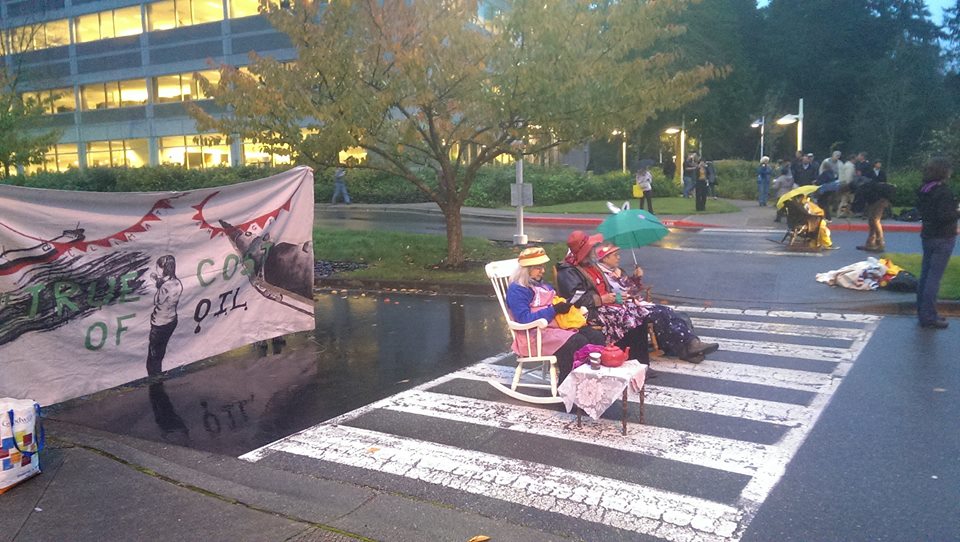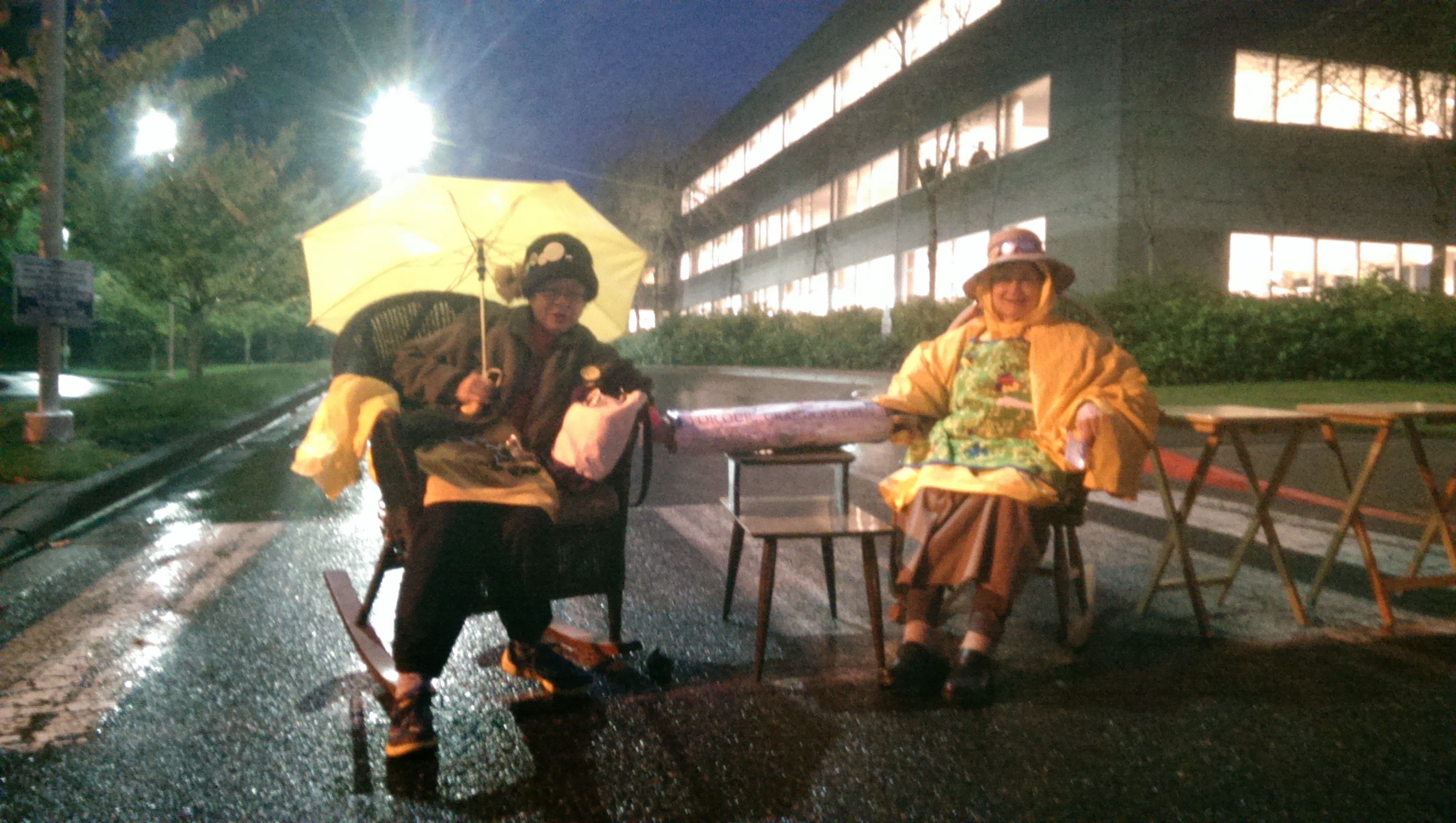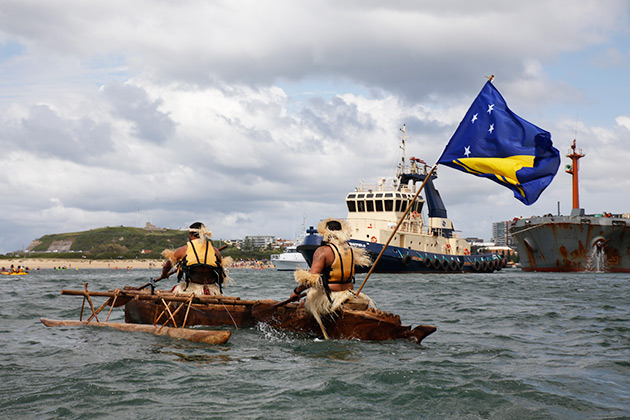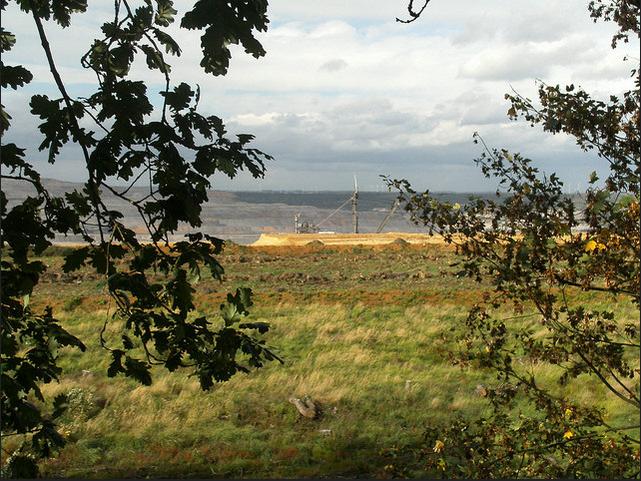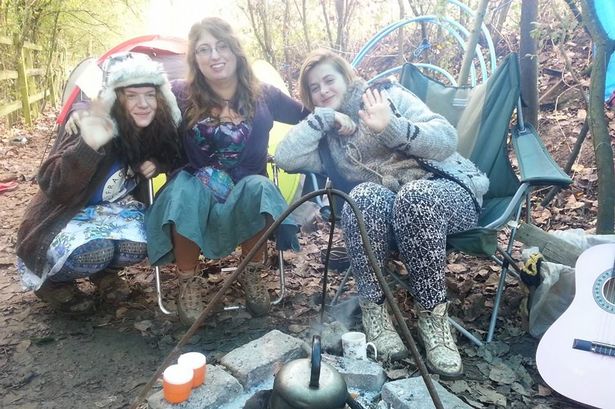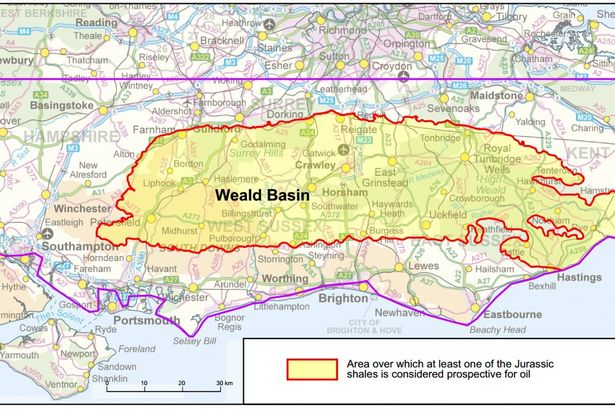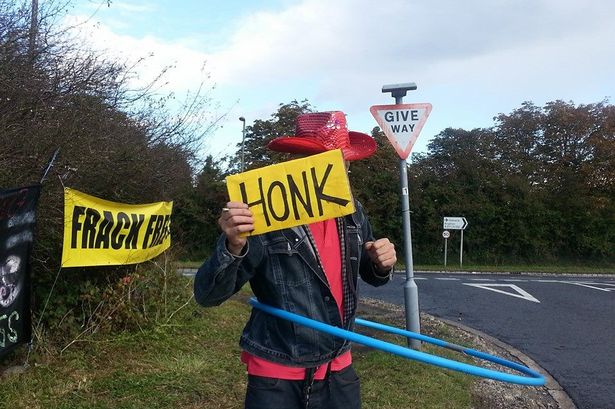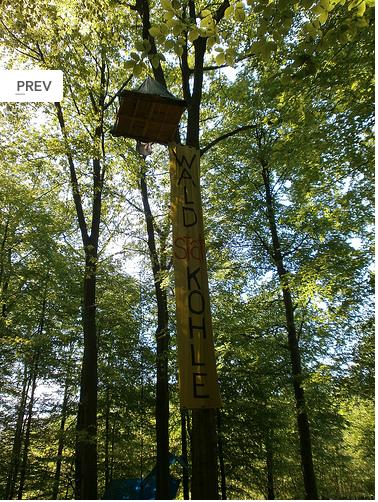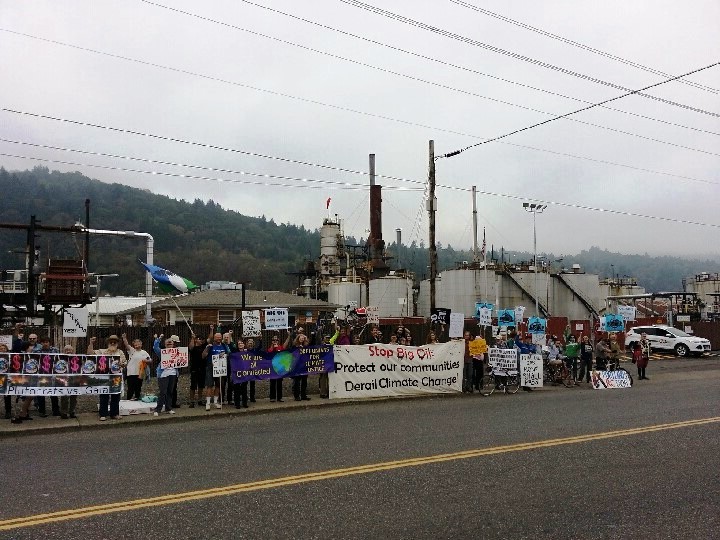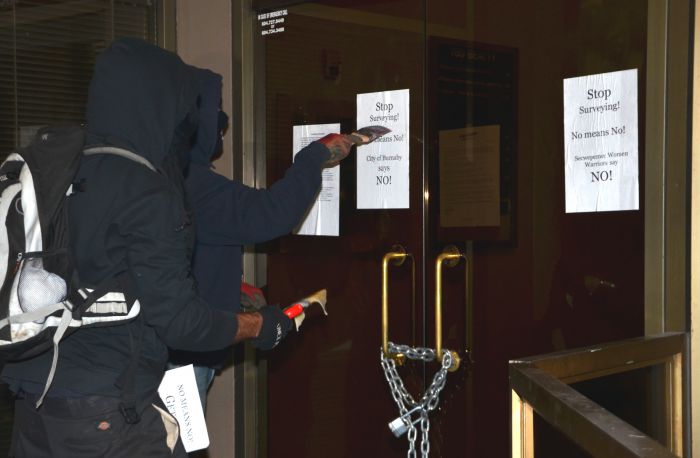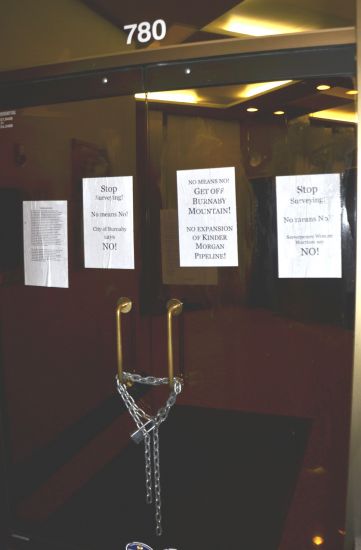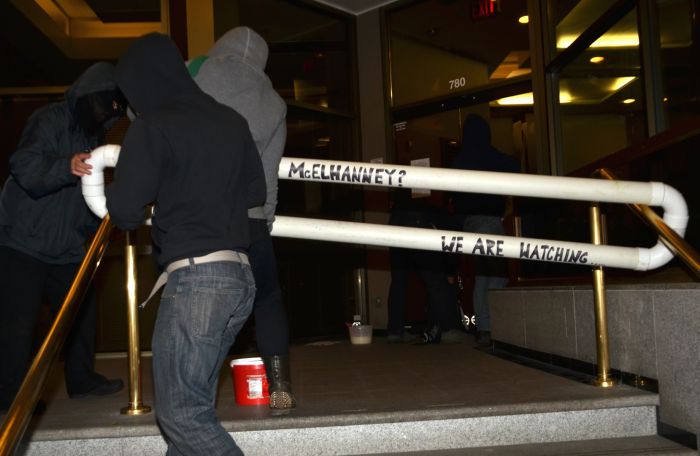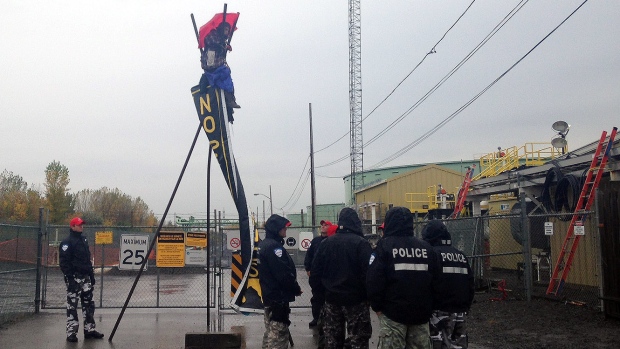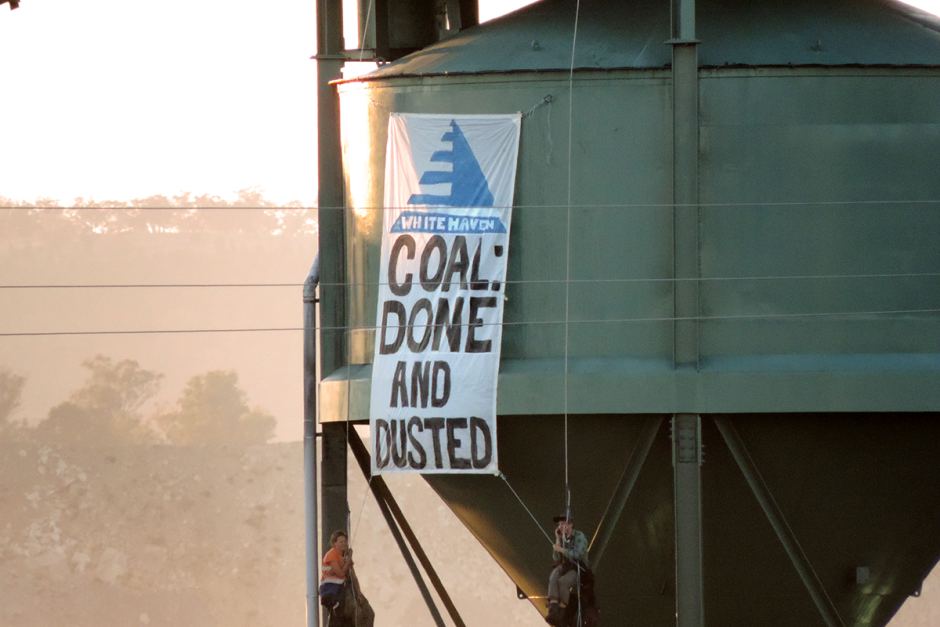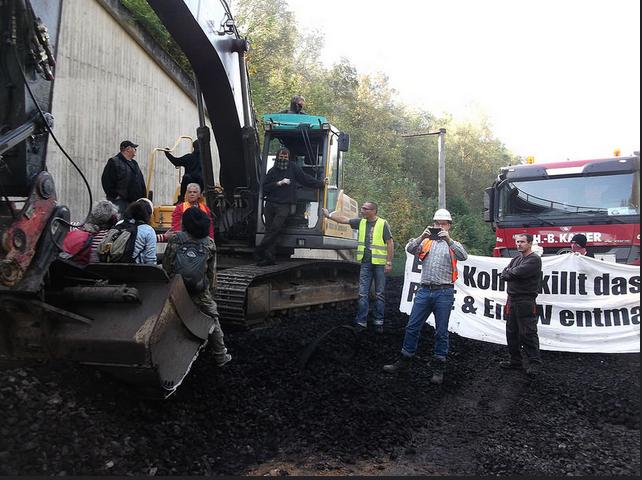UPDATE: Grannies Unlock After 6-Hour Blockade
Currently, seven members of the Seattle Raging Grannies are blocking the entrance to the Department of Ecology headquarters, stalling traffic and preventing employees from entering work. The groups are sitting in rocking chairs chained together across the Department’s vehicle entrance.
They are telling workers that the Department is closed today for a “Workshop on How to Say No to Big Oil.” Today’s action coincides with hearings on a controversial study on the safety of oil trains conducted by the Department of Ecology. Hundreds are expected in Olympia to express concern at the study’s narrow scope and omission of risks to the environment or treaty rights.
Police and FBI are on the scene trying to direct traffic, and ecology management is making supportive employees move inside so they can’t talk to the media about their support of the elders.
Dale R Jense, program manager for the department’s oil spills safety program, is currently walking the line and talking to the grannies, who remain in high spirits and are singing songs. There is a group of supporters making sure that the DoE knows that fossil fuel shipments are unpopular, dangerous, and bad for the planet.
“We’re here to help the Department of Ecology learn how to say no to the oil industry,” said Beth DeRooy. “After granting permits to four illegal oil train terminals and letting former BNSF executives write their oil study, I was worried the folks over at the Department never learned how to say no and needed a little help from their grannies.”
Since 2012 the Department of Ecology has granted permits for oil-by-rail terminals at four of Washington’s five refineries. Terminals in Tacoma, Anacortes and at Cherry Point outside of Bellingham, have begun taking trains while a fourth is under construction at the Phillips 66 refinery in Ferndale. Environmental groups have argued that the these terminals are illegal under the Magnuson Act, which prohibits expansions at Washington refineries that may increase the amount of oil they handle.
Permits for a fifth oil-by-rail terminal at Shell’s Puget Sound refinery are currently under consideration. “Hot on the heels of record wildfires, Governor Inslee’s so-called Department of Ecology is going to ignore the environment in this study? They’re acting more like the Department of Oil Trains,” stated Cynthia Linet.
Last year Governor Inslee directed the Department of Ecology to conduct a safety study on the extremely controversial shipment of oil by rail. The governor’s study has been criticized for ignoring impacts on the environment, treaty rights and global warming, as well as failing to question whether they should build oil-train terminals in the first place.
The Department of Ecology has declared that impacts on the environment, tribal treaty rights or local economies are “ancillary” and not being considered. The Department has also come under fire after revelations that a number of the study’s authors are former BNSF executives.
“You’d think bringing exploding trains to help oil companies devastate Native American communities in North Dakota would be easy to say no to, but it looks like the Department of Ecology needs a stern lesson from their grannies,” said Carol McRoberts.
Many of North Dakota’s oil wells are on tribal lands of the Mandan, Hidatsa and Arikara nations. In addition to spills and other local pollution, the oil boom has brought tremendous social costs to the communities. Deaths from auto accidents, drug abuse and violent crime have exploded; housing shortages force many to live in substandard conditions; and sexual violence such as rape and sex trafficking have become prevalent in a once small community.
“My daughter is 15 months old and my heart aches that I do not even want her to be at home for fear of what she’d be exposed to,” said Kandi Mossett, a member of the Mandan, Hidatsa and Arikara nations who submitted written testimony to today’s oil train hearings. “This oil boom using fracking has been devastating for us and no amount of money can ever give us back what’s being lost.”
Protestors handed out doughnuts and coffee as they turned away employees’ cars. They also handed out a flier explaining “How to Say No To Fossil Fuels.” The flier calls on the Department of Ecology to reject all new fossil fuel projects proposed for Washington and to explicitly link their rejection to concerns about global warming.
Climate justice activists point out that if all proposed fossil fuel terminals are built, the Northwest will be transporting five times more carbon than the Keystone XL Pipeline.
“It’s grandma’s common sense – we need to keep carbon in the ground to stop catastrophic global warming, and if they can’t ship it, they have to leave it in the ground,” said Rosy Betz-Zall. But while he has been widely hailed as one of the greenest governors in America, Inslee has yet to outright reject a major fossil fuel project, or even declare a moratorium on projects that would increase dangerous shipments of explosive oil.
“Governor Inslee talks about being a climate champion, but he keeps saying ‘maybe’ to new fossil fuel projects, when what we need is a solid ‘NO’,” said Deejah Sherman-Peterson.
“Take it from your granny: if you want to say yes to something good – a just, clean energy future – you have start by saying NO to something bad – building more fossil fuel infrastructure.”
Today’s protest follows an intense wave of opposition to oil-by-rail across the Northwest this summer with protestors locking themselves to barrels of concrete and sitting atop tripods to blockade railroad tracks across Washington and Oregon.

 <
<
